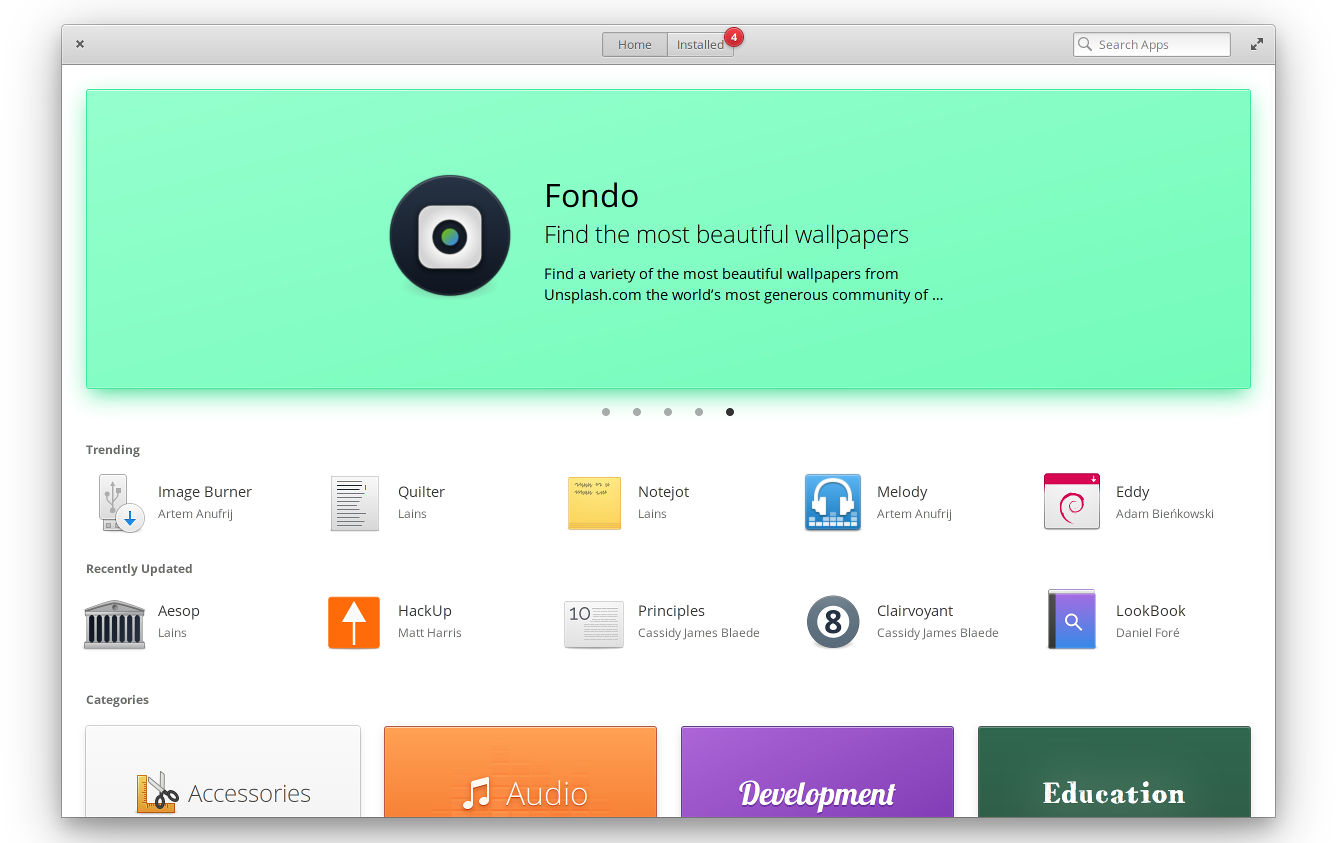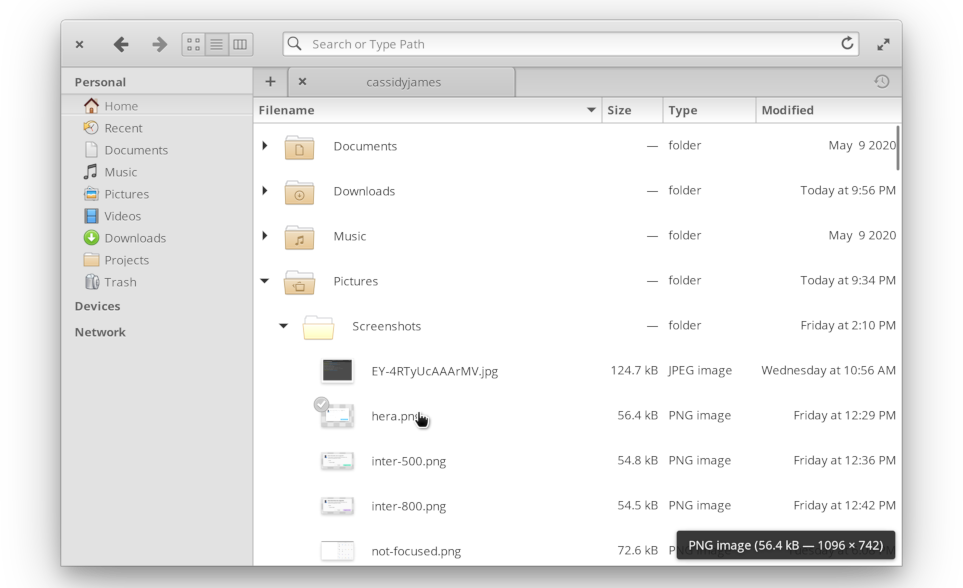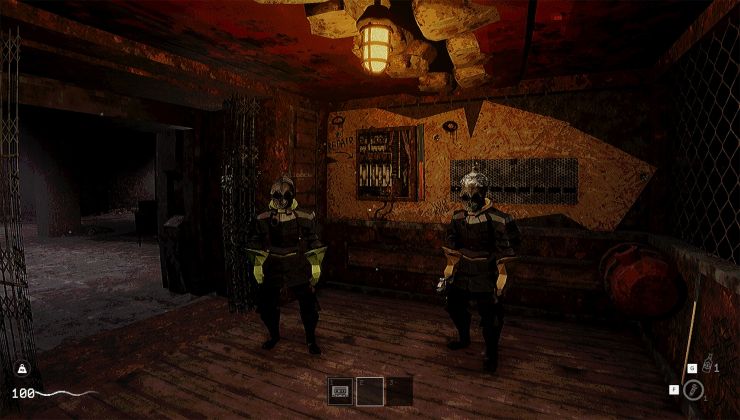As part of the ongoing work to reduce authentication fatigue, the elementary OS team are going over everything with a fine-tooth comb to ensure asking for admin / root permission makes sense.
One idea they came up with, which appears to be integrated into elementary OS 5.1.5 'Hera', is the removal of needing to enter the admin password when you're doing updates with the AppCenter. The question is why? As they explained, you already gave your full permission to install the applications originally and that they "provide clear expectations around curated versus non-curated apps" so they felt it didn't make sense to authenticate again just to do updates.
I like the idea and hope it doesn't somehow backfire. Authentication fatigue can be a very real thing. It's the same as the cookie banners a lot of websites have because of all their external stuff loading in, I imagine clicking them away without even looking is now what the majority do because it's constantly there.
Another really nice change is how images are copied in their file manager. Copying an image in Files and then pasting into a program like an image editor, will now actually paste the image in (if possible) and not a file path. That's quite a handy accessibility update and one I love the sound of. On top of that their file manager will also now show a file info overlay while in the list view which is a nice tweak.
elementary OS has the kind of attention to the finer details that I wished every Linux distribution had.
If you're interested in what else the crew have been up to, check out their latest update post. For more info on elementary OS check the official site. They go for a pay what you want method for downloading their ISO, you can support them with as much or as little as you like (even zero), it's certainly a different way to support a Linux distribution but it appears to work well for them.
Authentication fatigue is not the only reason. When you require a password too many times, it stops being something to pay attention to.That's part of what authentication fatigue actually is ;)
Last edited by Liam Dawe on 5 Jun 2020 at 10:39 am UTC
I have timestamp_timeout=0 set in my sudoers defaults for this very reason. I also have targetpw set, because it shouldn't be my user password that unlocks admin mode.
# Allows certain command to run without a password
scaine ALL=(root) NOPASSWD: /usr/bin/apt update
scaine ALL=(root) NOPASSWD: /usr/bin/apt dist-upgrade
scaine ALL=(root) NOPASSWD: /usr/bin/apt auto-remove
scaine ALL=(root) NOPASSWD: /usr/bin/purge-old-kernels
Although since I've moved to Mint, I find the GUI for updates is pretty good, so I don't do my command-line maintenance anywhere near as much.
One idea they came up with, which appears to be integrated into elementary OS 5.1.5 'Hera', is the removal of needing to enter the admin password when you're doing updates with the AppCenter.Ubuntu already did this, somewhere around the 12.04 cycle.
But Flatpaks are made for non-system applications (i.e. GUI), so the Elementary OS rational is also very relevant IMO.
Well i think on most distros you can enable automatic upgrades, that's what i usually do on the stable variants, as they tend not to break (ever) with upgrades.It's good to hear this. Fedora has an auto-upgrade option or plug-in through dnf. Flatpak already automatically updates which is a recent change I like. I still manually upgrade dnf repos through the terminal because I like seeing seeing what is being updated and changed. It's good to see other distros adopting auto-update behavior too.
The future, at least for mainstream OS's, will be immutable system images in a containerized app environment, like Fedora Silverblue, CoreOS, and others. That's a short ways down the road though.
Last edited by randyl on 5 Jun 2020 at 5:46 pm UTC
The future, at least for mainstream OS's, will be immutable system images in a containerized app environment, like Fedora Silverblue, CoreOS, and others.(Little kid voice) Why?
Haha, I got a good chuckle out of 'little kid voice'. I can relate.The future, at least for mainstream OS's, will be immutable system images in a containerized app environment, like Fedora Silverblue, CoreOS, and others.(Little kid voice) Why?
It's just a hunch and opinion based on the goals immutable images are supposed to accomplish. I believe the idea is to improve core OS stability, reliability, and upgrade management while keeping customization to container based environments in userland. It should offer more consistent and focused OS development and maintenance. I don't think the traditional approach will go away, but rather mainstream distros will move to something like this. The idea behind this tech makes a lot of sense to me, but I also think it has a long way to go before it's mature and ready for mass consumption.
I paste this into /etc/sudoers on every single install I do.
# Allows certain command to run without a password
scaine ALL=(root) NOPASSWD: /usr/bin/apt update
scaine ALL=(root) NOPASSWD: /usr/bin/apt dist-upgrade
scaine ALL=(root) NOPASSWD: /usr/bin/apt auto-remove
scaine ALL=(root) NOPASSWD: /usr/bin/purge-old-kernels
Although since I've moved to Mint, I find the GUI for updates is pretty good, so I don't do my command-line maintenance anywhere near as much.
I do the same. It's also possible to group the listed binaries under command aliases, which — IMHO — makes the sudoers file a little tidier; e.g.
Cmnd_Alias SOFTWARE = /usr/bin/dnf upgrade, /usr/bin/rpm
Cmnd_Alias SOMETHINGELSE = /usr/bin/somethingelse& then, for the actual permissions:
%wheel ALL=(ALL) NOPASSWD: SOFTWARE, SOMETHINGELSE
It's just a hunch and opinion based on the goals immutable images are supposed to accomplish. I believe the idea is to improve core OS stability, reliability, and upgrade management while keeping customization to container based environments in userland. It should offer more consistent and focused OS development and maintenance. I don't think the traditional approach will go away, but rather mainstream distros will move to something like this. The idea behind this tech makes a lot of sense to me, but I also think it has a long way to go before it's mature and ready for mass consumption.I agree with you again @randyl ;)
The new ideas behind Silverblue, and more specifically behind the ostree and flatpak techs, are really interesting. At its core, it comes from git's tech: one sha = one specific commit, and you can transparently switch between commits any time you want.
The result, with ostree, is that it is very difficult to break your system (like a standard repo upgrade could do.. nvidia drivers anyone?
As for Flatpak, the interesting part is that Flatpak packages still shares packages together. And if one is depending on a package at version 1.1, and the other is depending on version 1.2, the packages are simply pointing to different "commits". So, compared to a more regular upgrade system, you can't have the upgrade of one package breaking the upgrade of a second package because the new version of one of the dependencies is actually incompatible with the second package for whatever reason.
And, also, Flatpak packages are jailed, which procures a bit more security overall.
As @randyl said, all these techs are still quite young compared to traditional package systems, but they are really interesting. I don't use Silverblue, but I do use Flatpak a lot ;)
Last edited by Creak on 6 Jun 2020 at 5:37 pm UTC










 How to set, change and reset your SteamOS / Steam Deck desktop sudo password
How to set, change and reset your SteamOS / Steam Deck desktop sudo password How to set up Decky Loader on Steam Deck / SteamOS for easy plugins
How to set up Decky Loader on Steam Deck / SteamOS for easy plugins
See more from me